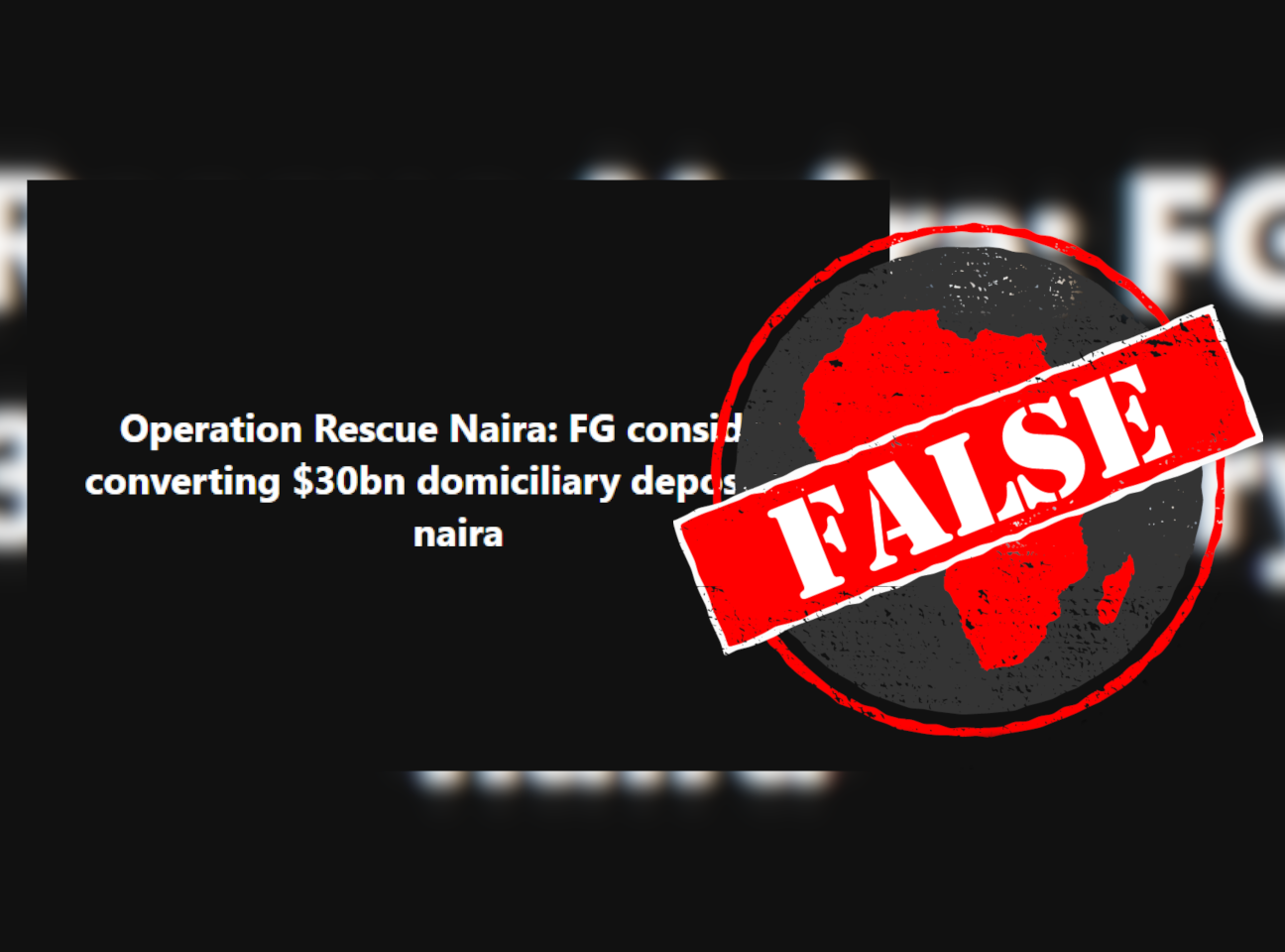IN SHORT: The Central Bank of Nigeria says it is not considering converting billions of dollars in local bank accounts into naira. Ignore social media posts claiming otherwise.
Several Facebook posts claim that the Nigerian government wants to convert US$30 billion (about N27 trillion) in domiciliary accounts into naira, in order to save the local currency.
A domiciliary account is a type of account that allows Nigerians to make transactions in foreign currencies using local banks. This type of account is particularly useful for individuals and companies that trade internationally, travel frequently or need to make and receive payments in foreign currencies.
A 3 February 2024 post reads: “Operation Rescue Naira: FG considers converting $30bn domiciliary deposits to naira.”
The Nigerian naira continues to weaken against foreign currencies such as the dollar, pound and euro. The naira reportedly hit a new low against the dollar between January and February 2024.
The weakness of the local currency means that people’s purchasing power is reduced as imported goods become more expensive. The depreciation of the naira is also taking its toll on foreign investors.
Several users have posted the claim here, here, here, here, here, here and here.
But is the Nigerian government considering converting $30 billion into naira? We checked.

‘Allegation is absolutely false’
In a post on X (formerly Twitter), the Central Bank of Nigeria (CBN) denied the rumours.
The 3 January 2024 post reads, in part: “This allegation is absolutely false and aims to trigger panic in the foreign exchange market, which the CBN is working assiduously to stabilise, as evidenced by its recent work and policy directions.”
In what it calls an act of “national sabotage”, the bank urges stakeholders to disregard stories aimed at causing panic.
Several news organisations also reported the CBN’s denial of the rumour.
Misinformation or rumours about government economic policies can have adverse effects on the economy. Fact-checking ensures that accurate information is available to businesses, investors and consumers, all of whom help to maintain economic stability.
Republish our content for free
For publishers: what to do if your post is rated false
A fact-checker has rated your Facebook or Instagram post as “false”, “altered”, “partly false” or “missing context”. This could have serious consequences. What do you do?
Click on our guide for the steps you should follow.
Publishers guideAfrica Check teams up with Facebook
Africa Check is a partner in Meta's third-party fact-checking programme to help stop the spread of false information on social media.
The content we rate as “false” will be downgraded on Facebook and Instagram. This means fewer people will see it.
You can also help identify false information on Facebook. This guide explains how.


Add new comment